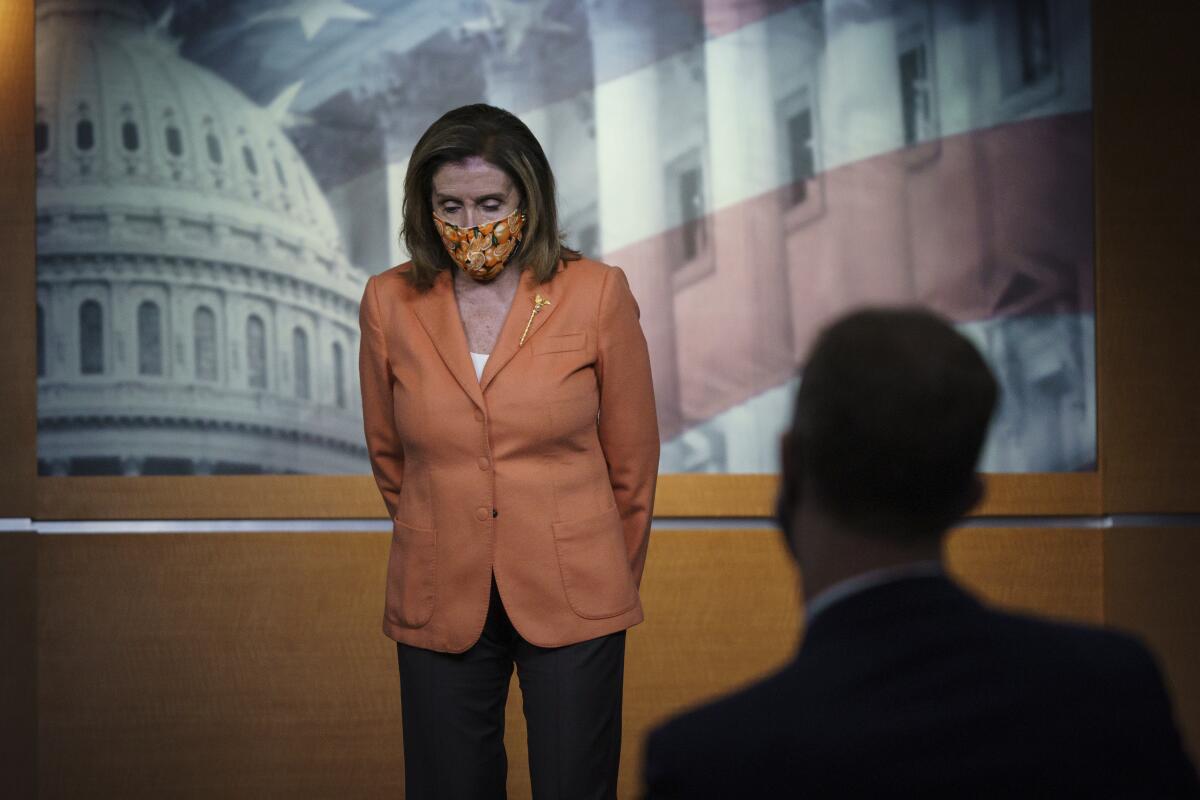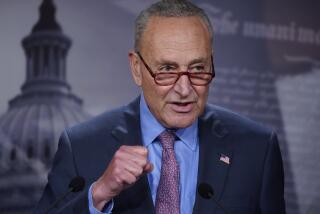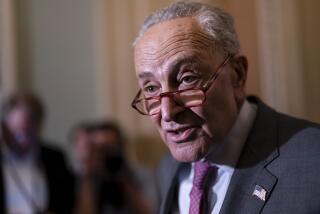White House, Democrats inch toward coronavirus stimulus package, including more checks

After months of discussion and negotiation, Democrats and the White House inched closer to agreeing on a massive coronavirus spending package Tuesday.
House Speaker Nancy Pelosi (D-San Francisco) said after a nearly 45-minute phone conversation with Treasury Secretary Steven T. Mnuchin on Tuesday that she’s hopeful legislation will come together this week.
“That’s the hope, let me say that,” Pelosi told reporters.
Over the weekend, Pelosi set a Tuesday deadline, saying if the structure of a deal was not in place by then, a package was not likely before the election.
Senate Majority Leader Mitch McConnell (R-Ky.) told colleagues at a closed-door lunch Tuesday that he had urged President Trump not to reach a deal with Pelosi ahead of the election, saying he’s concerned it could interfere with the time needed to confirm Amy Coney Barrett to the Supreme Court, the Washington Post and New York Times reported. McConnell is also worried about forcing Republicans to vote on a large spending bill days before the election.
A Senate committee vote on Barrett is expected on Thursday, with final confirmation by the full Senate likely on Monday.
Senate Republicans remain a barrier to passing another major stimulus package. Republicans have been unable to cobble together the 60 votes needed to pass any major aid package since Congress passed the $1.8-trillion CARES Act in March — with rank-and-file members citing concerns about the price tag. They failed to pass a piecemeal bill Tuesday that would have extended small-business loans through the Paycheck Protection Program.
Earlier in the day Pelosi adamantly denied she was stringing the White House along. Pelosi told Bloomberg TV she was optimistic a deal could be reached, saying the administration’s latest proposal for coronavirus testing and contract tracing is more in line with Democrats’.
But she noted that major issues remained unresolved and that even if an agreement were reached soon, direct payments to Americans struggling amid the pandemic wouldn’t reach households in time to help with November bills.
Pelosi and Mnuchin have struggled to reach a deal in numerous meetings and phone calls since July, including an hourlong conversation Monday. But both sides indicated in recent days they had begun narrowing the gap between their positions.
Pelosi spokesman Drew Hammill said on Twitter that Tuesday’s conversation provided “clarity” and “common ground,” and that discussions would continue.
“Today’s deadline enabled the speaker and secretary to see that decisions could be reached, and language could be exchanged, demonstrating that both sides are serious about finding a compromise,” he said, adding that relevant committee chairs have been tasked with working out the details.
Details of a plan remain sketchy, but it is expected to include another direct payment to individuals, a revamped Paycheck Protection Program to provide more loans to small businesses, money to help schools safely reopen and additional funding for testing.
Pelosi indicated in the Bloomberg interview that Democrats may have to back away from their demand for extra money to help state governments conduct the 2020 election during the health crisis.
Pelosi said there was still no agreement on two of the biggest sticking points: how much funding the federal government should provide to state and local governments struggling with a drop in tax revenue, and which businesses should be shielded from liability if customers or employees contract the coronavirus.
Trump initially said he wouldn’t go beyond a $1.8-trillion package, but said Tuesday he could support a package topping Democrats’ demands of $2.2 trillion.
“The government — we get the money back — it gets the money back anyway, and it’s better than unemployment and all the costs associated with the alternative,” he said.
Trump has insisted that Republicans will “come along” once a deal with Democrats is reached, but it is still unclear whether any deal negotiated by Democrats and the Trump administration could get approval in the GOP-led Senate.
Senate Appropriations Committee Chairman Richard C. Shelby (R-Ala.) said his staff was working with Mnuchin to craft language for a bill, but he was pessimistic that a deal would be possible this week.
“You never know what’s going to happen around here at the last minute, but it’s getting to be toward the last minute and the clock keeps ticking away,” Shelby said. “I’m not optimistic about doing anything.”
Multiple Republicans said Tuesday they were concerned Democrats would include unrelated items in a large coronavirus spending package.
Sen. John Thune (R-S.D.), who is tasked with counting votes in the Senate, told reporters he doubted there would be enough Republican support to pass such a large package, even if all Democrats voted in favor.
McConnell (R-Ky.) told reporters a deal reached by Democrats and the White House would get considered in the Senate, but did say not when.
“If a presidentially supported bill clears the House, at some point we’ll bring it to the floor,” he said.
The Senate is scheduled to vote Wednesday on a smaller GOP economic aid package with $500 billion in new spending. It does not include direct payments to Americans similar to the up to $1,200 per person in the CARES Act, and Democrats are expected to block it. The Republican bills are not part of the broader negotiations, and both Trump and Democrats have dismissed them as too small.
More to Read
Get the L.A. Times Politics newsletter
Deeply reported insights into legislation, politics and policy from Sacramento, Washington and beyond. In your inbox three times per week.
You may occasionally receive promotional content from the Los Angeles Times.







